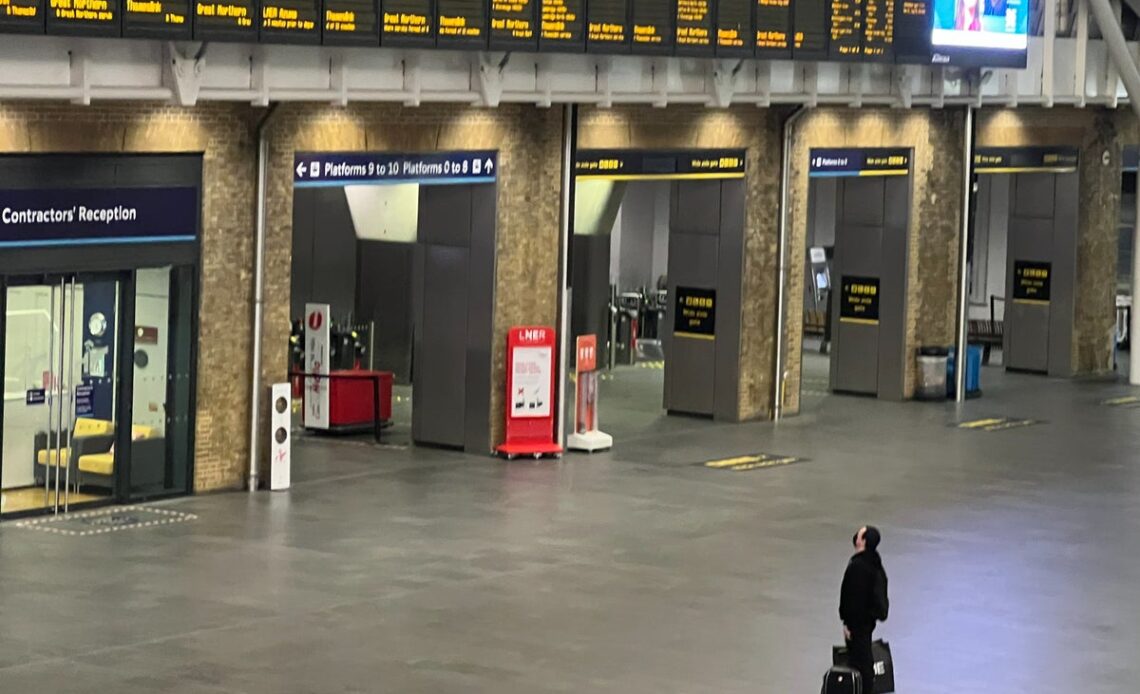As the biggest rail strike in four decades began, the general secretary of the RMT union has attacked what he says are the government’s plans for the railway.
Mick Lynch claims ministers plan to shut every ticket office in Britain and remove guards from trains.
The rail union boss said: “We cannot go back to having guard-less trains, as [former transport secretary] Grant Shapps called it.
“We cannot accept the closure of all the ticket offices in Britain. That’s what’s on the table. No ticket office will exist on the national railway network if Grant Shapps’ plan goes forward.”
The Department for Transport has insisted “no final decision has been taken on ticket offices”.
Mr Lynch was speaking on a picket line at London Euston station, which is closed because of industrial action by four unions.
Train drivers belonging to the Aslef union, and members of the TSSA and Unite, have coordinated stoppages that the RMT said would “bring the railway to an effective standstill”.
In fact, around one train in nine is running – mainly on intercity links between London and cities such as Leeds, Sheffield, Bristol and Southampton.
The general secretary said: “Companies will try and run a skeleton service but it won’t be anything that the public can rely on, as far as we can see.”
Union bosses have met the new transport secretary, Anne-Marie Trevelyan, in what Mr Lynch called “a good meeting, positive”.
Ms Trevelyan told the Evening Standard: “Hopefully, my view of the world and the ability to bring everyone together is something that will get everyone to agree that we can find a landing zone that we can all live with.”
A spokesperson for the Rail Delivery Group, representing train operators, said: “No final decision has been taken on ticket offices.
“We are looking at how we can move staff from behind glass windows in ticket offices to provide face-to-face assistance elsewhere on the station where they are closer to customers and better placed to help them.
“Today, just 13 per cent of tickets are currently bought using a ticket office – that number is continuing to decline. When the industry was privatised, 82 per cent of tickets were bought at a ticket office – today technology has moved on significantly and less than one in eight tickets are now bought at a ticket office.
“Staff will always provide face-to-face services on the railways, which can be crucial for those who need additional support and cannot, or do not want to…
Click Here to Read the Full Original Article at The Independent Travel…
